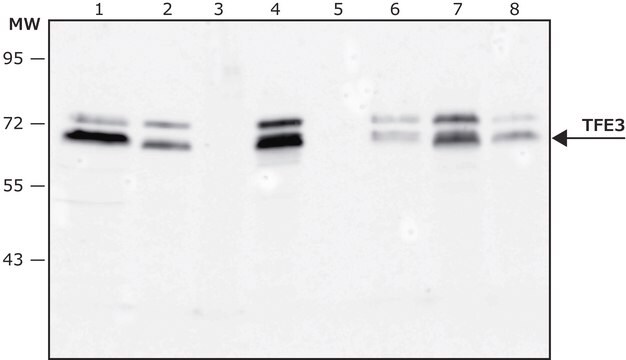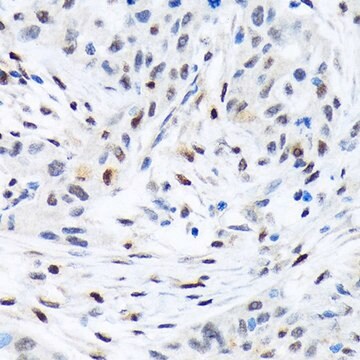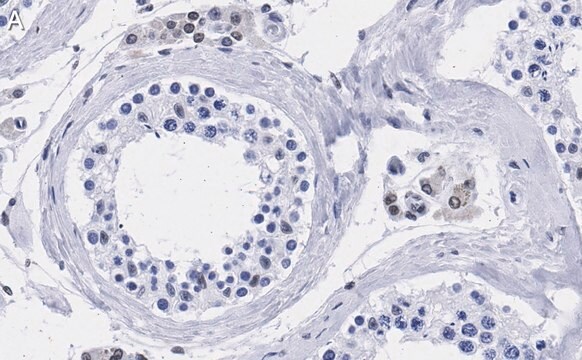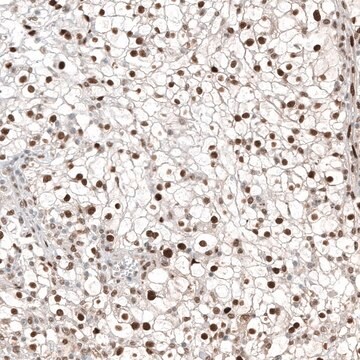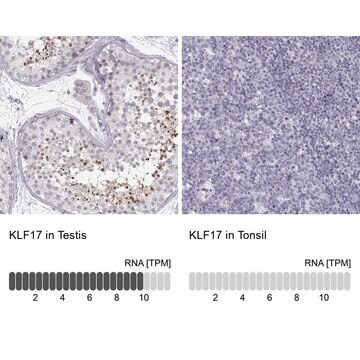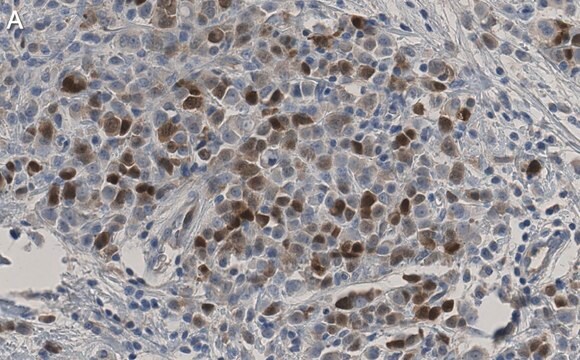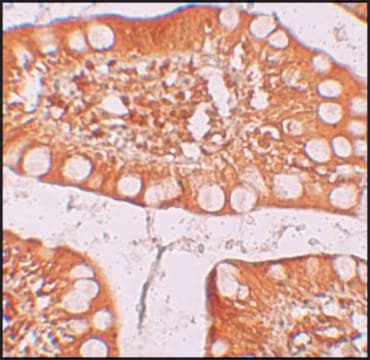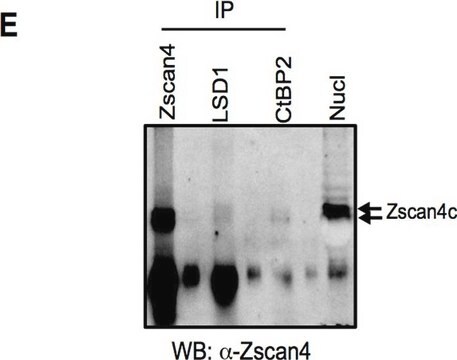おすすめの製品
由来生物
rabbit
抗体製品の状態
affinity isolated antibody
抗体製品タイプ
primary antibodies
クローン
polyclonal
フォーム
buffered aqueous solution
分子量
~60 kDa
化学種の反応性
mouse, human
包装
antibody small pack of 25 μL
濃度
~1.0 mg/mL
テクニック
immunoblotting: 4-8 μg/mL using human HeLa cells extract
immunofluorescence: 2.5-5 μg/mL using mouse embryo fibroblast NIH-3T3 cells
UniProtアクセッション番号
輸送温度
dry ice
保管温度
−20°C
ターゲットの翻訳後修飾
unmodified
遺伝子情報
human ... TFE3(7030)
詳細
Transcription factor E3 (TFE3), also known as Class E basic helix-loop-helix protein 33 (bHLHe33), is a transcriptional activator that mediates the enhancer-promoter interactions. TFE3 belongs to the MiT family of helix-loop-helix leucine zipper transcription factors, it is ubiquitously expressed and can directly associate with DNA as either homodimer or heterodimer formed with two other MiT family members, TFEB or TFEC. TFE3 serves an important role in cell growth, cell proliferation, in cellular adaptation to starvation and cellular response to ER stress. Under nutrient-rich conditions TFE3 is located in the cytoplasm, under starvation conditions or treatment with ER stressors, TFE3 rapidly translocated to nuclear, there it mediates cellular adaptation to stress by simultaneously promoting lysosomal biogenesis, autophagy induction, as well as expression of critical mitochondrial and metabolic regulators. TFE3 has been shown to participate in the transcriptional regulation of the innate immune response. in addition, it was demonstrated that pathogen infections promote TFE3 nuclear translocation, thus inducing the expression of several cytokines and chemokines.
Anti-TFE3 antibody specifically recognizes TFE3 from human and mouse origin.
Anti-TFE3 antibody specifically recognizes TFE3 from human and mouse origin.
免疫原
Synthetic peptide corresponding to the human TFE3
アプリケーション
The antibody may be used in various immunochemical techniques including Immunoblotting (∼60 kDa) and Immunofluorescence. Detection of the TFE3 band by Immunoblotting is specifically inhibited by the immunizing peptide.
物理的形状
Supplied as a solution in 0.01 M phosphate buffered saline pH 7.4, containing 15 mM sodium azide as a preservative.
その他情報
This product is for R&D use only, not for drug, household, or other uses.
適切な製品が見つかりませんか。
製品選択ツール.をお試しください
保管分類コード
10 - Combustible liquids
WGK
WGK 3
引火点(°F)
Not applicable
引火点(℃)
Not applicable
最新バージョンのいずれかを選択してください:
試験成績書(COA)
Lot/Batch Number
Chiara Di Malta et al.
EMBO molecular medicine, 15(5), e16877-e16877 (2023-03-30)
Birt-Hogg-Dubé (BHD) syndrome is an inherited familial cancer syndrome characterized by the development of cutaneous lesions, pulmonary cysts, renal tumors and cysts and caused by loss-of-function pathogenic variants in the gene encoding the tumor-suppressor protein folliculin (FLCN). FLCN acts as
ライフサイエンス、有機合成、材料科学、クロマトグラフィー、分析など、あらゆる分野の研究に経験のあるメンバーがおります。.
製品に関するお問い合わせはこちら(テクニカルサービス)
